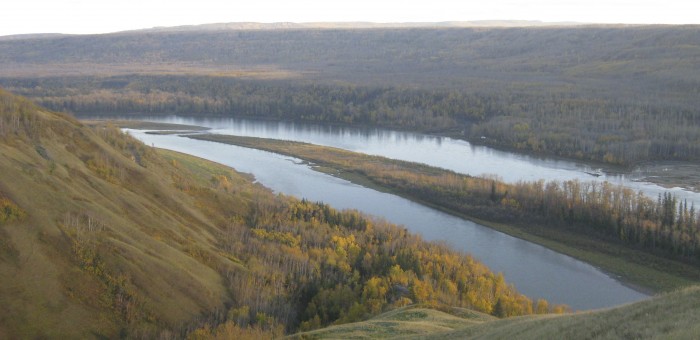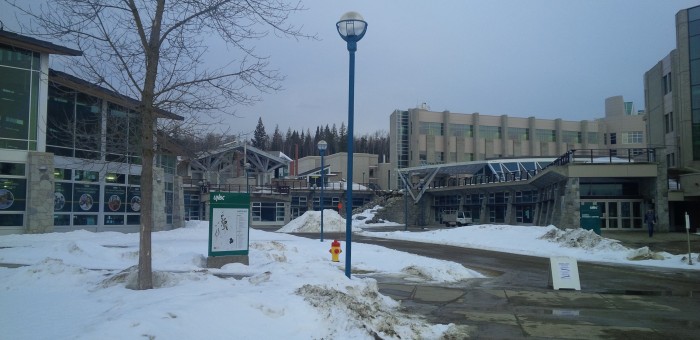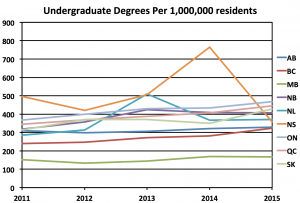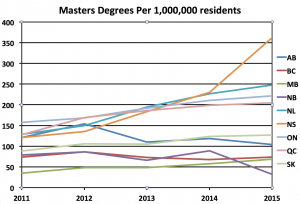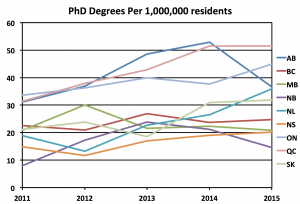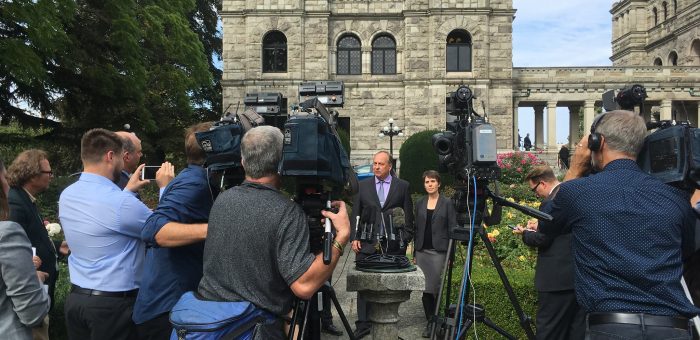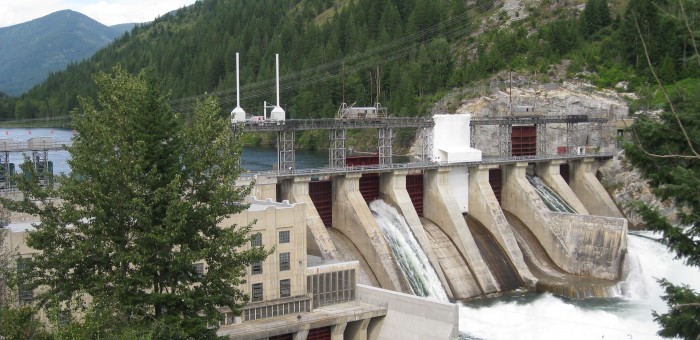Clean Technology
BCUC report puts final nail in Site C’s coffin
The long awaited British Columbia Utilities Commission Inquiry Respecting Site C was released today. I am absolutely thrilled with the thorough and comprehensive analysis that was undertaken. The report reaffirms the position that the BC Greens and I have taken on this project for the last five years.
As noted in the report’s Executive Summary:
-
“The BCUC is not persuaded that the Site C project will remain on schedule for a November 2024 in-service date. The Panel also finds that the project is not within the proposed budget of $8.335 billion. Currently, completion costs may be in excess of $10 billion.”
-
“The Panel finds the least attractive of the three scenarios is to suspend and restart the project in 2024. The suspension and restart scenario adds at least an estimated $3.6 billion to final costs and is by far the most expensive of the three scenarios. In addition, the Panel considers it the most risky scenario because, among other things, environmental permits will expire and that will require new applications and approvals.”
-
“The Panel finds the Site C termination and remediation costs to be approximately $1.8 billion, in addition to the costs of finding alternative energy sources to meet demand.”
- “The Panel finds BC Hydro’s mid load forecast to be excessively optimistic and considers it more appropriate to use the low load forecast in making our applicable findings as required by the OIC. In addition, the Panel is of the view that there are risks that could result in demand being less than the low case.”
- “The Panel believes increasingly viable alternative energy sources such as wind, geothermal and industrial curtailment could provide similar benefits to ratepayers as the Site C project with an equal or lower Unit Energy Cost.”
It is now up to the BC NDP cabinet to decide upon the fate of Site C. Armed with the BCUC report, it would be fiscally reckless to proceed with construction. The BC Greens will remain vigilant on this file to ensure that the BC NDP make the evidence-based decision to cancel the project.
Cancelling Site C will now take real leadership. I hope that the BC NDP will seize the incredible opportunity that has presented itself to develop a 21st Century vision for the future of energy in this province.
Below I reproduce the media statement that I issued on the report.
Media Statement
Weaver statement on BCUC Site C Report
For immediate release
November 1, 2017
VICTORIA, B.C. – Andrew Weaver, leader of the B.C. Green Party, issued the following statement in response to BCUC’s release of the Site C report.
“I am pleased that BCUC’s comprehensive review and insightful report have been completed on time,” said Weaver.
“It is unconscionable that the B.C. Liberals demonstrated such reckless disregard for British Columbians and for sound fiscal management by pushing through such a substantial mega-project without proper due diligence and oversight.
“I am very encouraged that the report indicates that alternative energy sources could provide similar benefits to ratepayers as Site C at an equal or lower cost. I have long argued that the plummeting cost of alternative renewables makes Site C the unequivocal wrong direction for B.C.’s energy future.
“Supporting the development of smaller renewable projects presents a significant economic opportunity for all corners of British Columbia. In recent months our caucus has met with numerous communities across the province who are proposing exciting projects like wind and geothermal that would generate jobs and innovation in their communities using private sector investment rather than billions in taxpayer funds.
“Cancelling Site C will take real leadership. I hope that the B.C. NDP will seize the incredible opportunity before us to develop a 21st Century vision for the future of energy in this province.”
-30-
Media contact
Jillian Oliver, Press Secretary
+1 778-650-0597 | jillian.oliver@leg.bc.ca
BC government’s climate solutions & clean growth advisory council
Today the BC Government announced the creation of the Climate Solutions and Clean Growth Advisory Council. This new council will provide government with advice on actions that lead to greenhouse gas emission reductions while at the same time positioning British Columbia as a leader in the emerging 21st century economy. In recognition that it is the provincial Climate Action Secretariat that ultimately must develop provincial policy, the Council will also serve as an important sounding board/advisory group to inform and provide feedback on government’s climate policies.
I am very pleased with the formation of this new council and its tightened mandate. Below I reproduce the media release.
Media Statement
Andrew Weaver welcomes appointment of Climate Solutions and Clean Growth Advisory Council
For immediate release
October 23, 2017
VICTORIA, B.C. – Andrew Weaver, leader of the B.C. Green Party, welcomed the government’s appointment of the Climate Solutions and Clean Growth Advisory Council today.
“I commend Minister Heyman on convening this excellent and diverse group of British Columbians that will help make B.C. a leader in climate action once again,” Weaver said.
“Both our caucuses have committed to implementing a climate action strategy that will meet our targets. This advisory council will provide valuable high level advice on how we can keep our climate commitments while ensuring that B.C.’s economy remains strong and its people able to thrive.
“Our province is already feeling the effects of climate change, but the risks of inaction to the next generation are even greater. We owe it to them to build a future that is full of promise and opportunity. We have set the targets that we must achieve in order to ensure intergenerational equity with respect to mitigating the effects of climate change. We now must develop an actionable strategy to achieve these targets. The B.C. Green caucus looks forward to working with the government on a climate action strategy to ensure we keep our promise to the next generation.”
-30-
Media contact
Jillian Oliver, Press Secretary
+1 778-650-0597 | jillian.oliver@leg.bc.ca
On the need for more engineers to be trained in BC
At every level — undergraduate, master’s, and PhD, B.C. lags behind other provinces in terms of the number of engineers it graduates per capita.
Of the 9 provinces that offer engineering undergraduate degrees, BC ranks a dismal 8th. It ranks 7th in Masters and 6th in PhDs (see graphs below using data from Canadian Engineers for Tomorrow Share: Trends in Engineering Enrolment and Degrees Awarded 2011-2015).
Quebec and Ontario graduated 40% more undergraduate engineers per capita in 2015 than BC. They graduated 280% and 300%, respectively, more Masters Degrees per capita while Nova Scotia graduated 500% more per capita. And Quebec also graduates more than twice the number of PhDs per capita than BC.
In fact, BC is one of the lowest ranked jurisdictions in the world in terms of engineering PhDs awarded per capita. To compound this discrepancy further, BC has the strongest projected employment growth for engineers in Canada.
This is an unacceptable situation for a jurisdiction attempting to position itself as an innovator in the emerging 21st century economy. It’s particularly troubling as universities in BC are chomping at the bit to expand their offerings. For example, an exciting opportunity exists in Squamish to create a innovative centre for clean energy research, training and industry partnership. UNBC is also hoping to establish an engineering program to meet the demand for professional engineers in northern communities.
To pick up on this theme I asked the Minister of Advanced Education how her ministry was going to facilitate the development of these programs and increase the number of engineering graduates in British Columbia, and in particular, UNBC. As you will see from the video and text below, the BC Liberals were quite unruly during question period and had to be reprimanded by the Speaker a number of times.
Video of Exchange
Question
A. Weaver: At every level — undergraduate, master’s, and PhD, B.C. lags behind other provinces in the number of engineers it graduates per capita. Of the nine provinces that offer engineering undergraduate degrees, B.C. ranks a dismal eighth. It ranks seventh in master’s and sixth in PhDs. Quebec and Ontario graduated 40 percent more undergraduate engineers per capita in 2015 than B.C. They graduated 280 and 300 percent, respectively, more master’s degrees than B.C., while Nova Scotia graduated 500 percent more master’s degrees than B.C. Quebec has more than twice the number of PhD graduates. In fact, B.C. is one of the lowest-ranked jurisdictions in the world in terms of engineering PhDs per capita.
To compound this discrepancy further, B.C. has the strongest projected growth, for engineers in Canada. There are post-secondary institutions eager to fill the need. UNBC has been trying to get an undergraduate engineering program…
Mr. Speaker: Member, your question.
A. Weaver: …for years. The engineering department at UBC wants to build a tech campus in Squamish.
To the Minister of Advanced Education, Skills and Training, how is her ministry going to facilitate the development of these programs and increase the number of engineering grads in British Columbia?
Interjections.
Mr. Speaker: Members.
Answer
Interjection.
Hon. M. Mark: Sorry, what was that?
Interjection.
Hon. M. Mark: Yeah, exactly. It’s not you asking the question. I’m the one answering the question, through the Speaker.
Interjections.
Mr. Speaker: Members.
Hon. M. Mark: No, it’s okay. I’m used to this. I’m used to this circus on the other side. It has only been a week, but it’s been fun.
Interjections.
Mr. Speaker: Members.
Hon. M. Mark: I thank the member for Oak Bay–Gordon Head for the question.
Interjection.
Hon. M. Mark: Well, of course I do. I like to stand in this House as an advocate for post-secondary education. For the last 16 years…. In the first 21 days on the job, I had a chance to travel the province and hear from students and get to see STEM in action — science, technology, engineering and math.
We’re going to do something about this on this side of the House to send a message to students that we’re on their side, that we’re going to invest in their education. We’re going to invest in the tech sector.
We know that the tech sector is a $26 billion industry. Our friends on the other side of the House remind us that we’re not interested in jobs, but we need to make sure that we’re training people up. We’re going to make sure that those 100,000 people that are contributing to the economy are trained up in engineering. So we’re going to increase co-op placements. We’re going to increase apprenticeship placements. We’re going to make sure that the trade seats are relevant all across the province, not just select regions in the province.
I look forward to working with the member for Oak Bay–Gordon Head on increasing the seats in engineering in B.C.
Supplementary Question
A. Weaver: If ever there was any doubt why this boisterous bunch needed to be put in a time-out, today is the justification for that.
Interjections.
A. Weaver: In mathematics, hon. Speaker, “QED” is often used to demonstrate exactly what I was just saying.
UNBC has proven that if we train people in the north, they stay in the north. In fact, more than half of their 13,000 alumni live in the north, contributing to the society, culture and employment base. Engineering should be offered at UNBC. It would add to those figures.
I recognize that 16 years of rule by the Luddites opposite, who do not understand the importance of the new economy, abandoned rural B.C. and left them on the hook. They abandoned development in rural B.C….
Interjections.
Mr. Speaker: Member, please be seated for a moment.
Members, we are reminded that when someone is speaking, we will listen with good manners.
A. Weaver: My question to the Minister of Advanced Education, Skills and Training is: what is your ministry doing to ensure vibrant educational opportunities are available across all disciplines in our northern communities, in order to allow these communities to take advantage of the emerging opportunities in the 21st century economy that have been left out because of 16 years of incompetent rule by the B.C. Liberals?
Answer
Hon. M. Mark: I’m so pleased to hear a question about post-secondary advocacy in this House, because it’s about time that we have a government that’s going to advocate for the students all across British Columbia and make sure that we have those seats available. It is unacceptable that that government brought us to eighth place, in this province….
Interjections.
Hon. M. Mark: Pardon me? It’s exciting in here. I love the excitement. It’s about time that people are standing up for post-secondary education instead of standing in the way.
We’re going to get to increasing those seats across B.C., up in UNBC. We’re going to make sure that we’re investing in jobs in the 21st century. We’re going to make sure that we’re not standing the way by increasing debt and tripling tuition, like what was done under the last government in 16 years.
We are going to stand beside the students in British Columbia, and we made those measures, in the first 60 days of forming government, by reducing student debt, by making sure that we increase seats for students in the trade sector and the engineering sectors. We’re standing beside students in this province, and we’re sending a message that we are going to invest in them, not stand in their way.
Budget Update 2017 demonstrates value of minority governments
Today in the BC Legislature the government tabled its budget. I will be speaking to the budget later this week during the legislature debates. In the meantime, I issued a statement summarizing our reactions.
I am absolutely thrilled with with the introduction of this budget. It’s a budget that puts people first. And it’s a budget that shows that minority governments can work.
Below is a copy of my statement.
Media Statement
Budget Update 2017 demonstrates value of minority governments, underscores need for long-term economic vision
For immediate release
September 11, 2017
VICTORIA, B.C. – Andrew Weaver, leader of the B.C. Green caucus, responded to the Budget 2017 September Update delivered by Finance Minister Carole James today.
“We are thrilled with the introduction of this budget that puts people first,” Weaver said.
“The budget provisions for education, child care, affordable housing and essential services are long overdue investments in our future. We are also delighted that the pathway has been set to eliminate MSP premiums, a priority that BC Greens have championed for years.
“A strong sustainable economy is essential for the well-being of British Columbians. It is exciting to see that the key budget initiatives aimed at growing and diversifying B.C.’s economy originated in the B.C. Greens’ platform. The ideas of an Innovation Commissioner to champion the B.C. tech sector and the Emerging Economy Task Force to address the changing nature of business were born out of extensive consultations we conducted with businesses and entrepreneurs. The Fair Wages Commission and the basic income pilot project will improve income security for British Columbians while the carbon tax measures will help spur innovation in our economy. I look forward to seeing them implemented so that we can ensure B.C. is a leader in the changing global economy.
“The budget update also underscores the need for a long-term vision for the economic future of this province. While traditional indicators like GDP growth and job creation are encouraging, they do not tell the whole story of the health of our economy. In particular, it is worrisome that B.C.’s economic growth remains so dependent on the housing market, the growth of which has priced many British Columbians out of their own communities. The global economy is rapidly changing, with challenges and opportunities arising from trends like technological automation, climate change and the evolving nature of work. It is crucial that B.C. is prepared to address these issues head-on so that we can ensure British Columbians across the province can continue to enjoy a good quality of life for generations to come.”
-30-
Media contact
Jillian Oliver, Press Secretary
+1 778-650-0597 | jillian.oliver@leg.bc.ca
Issue-specific quotations
Minority Government
“Over the past few months, leaders from all three parties have acknowledged that British Columbians want us to work across party lines. There’s no question that this is a significant departure from the hyper-partisan, divisive B.C. Legislature. However, we can deliver on this promise for British Columbians if we put good public policy ahead of partisan calculation, if we strive for respectful and nuanced political discourse and if we remember the values and goals we share.
Affordability and housing
“British Columbians across the province continue to feel the squeeze of the affordability crisis. I am glad to hear that they will get some relief in the form of reduced MSP premiums beginning in 2018. However, as I stated during the election, we don’t need a plan to come up with a plan to eliminate this regressive tax. Best practices are already available from other provinces that have rolled premiums into the income tax system in a progressive fashion. I urge government to follow their lead, rather than kicking the can down the road by creating an unnecessary task force.
“I am glad that the government has increased spending to the Residential Tenancy Branch, which has not had the resources to adequately protect the rights of tenants and landlords, especially as the vacancy rate has diminished. I am also pleased that the government is investing in affordable rental stock and modular houses for homeless British Columbians.
“It is encouraging that the Minister acknowledged that we need an integrated approach to housing affordability. The B.C. Green caucus maintains and has communicated to the government through our consultations with the government that there are far more effective policies than a rebate that will provide renters with a mere dollar a day in financial relief. Not only will the rebate be low impact, it will also provide an incentive for landlords to raise already-high rents. This minority government presents a once-in-a-lifetime opportunity to collaborate to develop good public policy, rather than simply having one party push through its entire agenda. Moving forward, we will advocate for more impactful policies that will truly address the affordability crisis facing so many British Columbians.”
Education and child care funding
“I am also pleased to see an increase in funding to public education, which was the number one funding commitment made in our platform. Education is the best investment government can make, and I am thrilled that our public schools will receive additional support so they can better do the vital work of preparing the next generation of British Columbians for their future.
“It is also good to see an increase for childcare funding. The cost of childcare is a major financial burden on families. We look forward to working with the government to incorporate our best ideas on how to improve B.C.’s child care. In particular, the B.C. Green caucus’ vision for childcare is one that is means-based and does not require up-front out-of-pocket fees. We will also emphasize investment in Early Childhood Education, which has been shown to significantly improve educational outcomes for children by giving them the best possible head start.”
Carbon tax and climate change initiatives
“B.C. was once a leader in addressing climate change, and the dismantling of B.C.’s leadership on this file by the past Liberal government was unnecessary and alarming. I am glad to see that the new government has taken the first step towards getting us back on track by unfreezing the carbon tax. B.C. has already proven that the carbon tax is not an impediment to economic growth. Further, if the carbon tax is working as it should by providing a disincentive to produce emissions, the tax should eventually disappear as we transition to the low-carbon economy. In the meantime, the wildfires that devastated many parts of our province this summer and the increasing costs of natural disasters in other jurisdictions around the world highlight the need to mitigate the effects of climate change. I look forward to working with the government to come up with strategies to help B.C. businesses and communities adapt.”
Opioid and mental health crises
“I am glad that this government will make significant investments towards tackling the opioid and mental health crises. The crisis is continuing to grow, imposing a significant strain on government and non-profit services and programs. It is essential that our approach consider all the evidence and take immediate action to address this crisis.”
Bill M228 — Energy and Water Efficiency Act, 2017
Today in the legislature I rose to table Private Members’ Bill entitled: Bill M228 — Energy and Water Efficiency Act 2017: As I noted in introducing it, this Bill was originally tabled by the Liberal government in 2012 as Bill 32 — Energy and Water Efficiency Act. The Bill received support from all sides of the legislature when it was introduced in 2012. Unfortunately, it was never brought to the Committee of the whole house and subsequently third reading. We missed an opportunity in 2012 to pass this legislation. I hope that the government chooses to pick this up at this time.
Text of Bill Introduction
A. Weaver: I move that a bill intituled the Energy and Water Efficiency Act, 2017, of which notice has been given, be introduced and read a first time now.
Motion approved.
A. Weaver: I’m pleased to introduce a bill intituled the Energy and Water Efficiency Act, 2017.
This bill was originally tabled by the Liberal government in 2012. This is a bill that the Minister of Energy and Mines, at the time, said would reduce consumers’ energy bills and lower operating costs for B.C. businesses.
This legislation would replace the current Energy Efficiency Act. It would enable administrative penalties to ensure manufacturers, distributors and retailers comply with energy efficiency guidelines, broaden the scope of energy efficiency requirements to include commercial energy systems, industrial reporting and water efficiency and enable the minister responsible to enact regulations for technical standards.
It was a good and widely supported piece of legislation. It seems that the only reason it went to second reading and wasn’t taken to committee was the fact that the official opposition supported it.
I move that the bill be placed on the orders of the day for the second reading at the next House after today.
Bill M228, Energy and Water Efficiency Act, 2017, introduced, read a first time and ordered to be placed on orders of the day for second reading at the next sitting of the House after today.

